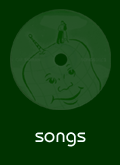
Carl
Sigman in the News
- - -
<< BACK



PianoForte Magazine
Carl Sigman's Legacy...Ebb Tide ∑ (Where Do I Begin) Love Story ∑ Itís All In The Game ∑ What Now My Love ∑ Pennsylvania 6-5000 ∑ Dance Ballerina Dance ∑ Crazy He Calls Me ∑ Shangri La ∑ Till ∑ Arrivederci Roma ∑ All Too Soon ∑ Answer Me, My Love ∑ Enjoy Yourself ∑ Losing You ∑ The World We Knew ∑ Youíre My World ∑ Itís A Marshmallow World ∑A Day In The Life Of A Fool ∑ If You Could See Me Now ∑ I Could Have Told You ∑ Buona Sera ∑ Hand Me Down Love ∑ Cloudy ∑ Come In Out Of The Rain ∑ Dream Along With Me ∑ Homesick For New England ∑ Little Bird ∑ Letís Give Love A Chance ∑ The Last Dance ∑ Robin Hood ∑ You Are Everything To Me ∑ The Value Of Love ∑ Believe In Me ∑ Bottle Up The Moonlight ∑ Iíll Go ∑ Paint Yourself A Rainbow ∑ Remember Me Wherever You Go ∑ Portofino ∑ Oceans Of Love ∑ River Of Smoke ∑ Story Of My Life ∑ Summer In New York ∑ Sunny ∑
Carl Sigmanís songs have touched our hearts for more than 60 years. Since his death last year at age 91, his son Michael has been reintroducing Carlís songs and discovering new ones that have never been recorded. We talked with Michael about his dadís song writing career and the valuable legacy he has given to us all.
Q. Your father practiced law for a year before launching his career as a songwriter. What caused such a dramatic change in his career goals?
A. He never aspired to be an attorney. His mother wanted him to study law, but his heart wasnít in it. His real love was music. He studied classical piano as a child and young adult and later gave piano lessons. The piano was always his main instrument.
Q. He wrote lyrics rather than melodies in a majority of his songs. Why did he choose to work in the verbal rather than the musical language?
A. When he started out, he wrote melodies. His first song was Just Remember, a collaboration with Johnny Mercer, where dad wrote the music and Mercer wrote the words. Mercer became dadís mentor and gently nudged him in the direction of writing lyrics. At the time, there were many musicians in the big bands who could write melodies but very few could write lyrics. From that time on, dad concentrated mainly on lyrics.
Q. What was his method when collaborating with a composer? Did he set his words to an existing melody or did he create the lyrics first?
A. Most often the melody came first, but there were various ways he worked. At times he collaborated directly with a composer and at other times, someone in Italy might send him a melody and they would never speak to each other. Sometimes he was given a theme or a title and other times nothing at all. For example, What Now My Love was originally a French song with the French lyric Et Maintenant, translating to And Now. He took those words and wrote the song. Another example is with Ebb Tide. Robert Maxwell had written the melody and gave it the title. Dad had to write the song, and it was very difficult because, what does ebb tide mean?
Q. He said the title was the hardest part. Why?
A. The title suggests the story and must fit into the melody in a significant way. It should also contain key words that are in the song.
Q.† His conversational lyrics have touched the hearts of millions. How did he capture the essence of everyday feelings and make them so memorable?
A. He was a very sensitive guy who was always picking up phrases from the vernacular. He would read and listen for everyday expressions that had meaning and they often found a place in his songs.
Q. A successful artist has the ability to tell a good idea from a bad one. How did your dad discern what ideas would make a good song?
A. When he wrote a lyric he would go over it and over it, play if for our family and friends and get everyoneís input. In those days the music publishers were the powerhouses and they had to believe in a song for it to be recorded. So there was a system of checks and balances. With the theme of Love Story, he wrote a lyric about a woman who died, because thatís what the movie was about. The people at Paramount wanted the focus to be on a love song, not a woman who died, so he had to rewrite it. Out of frustration, he said to my mother ďwhere do I begin?Ē That phrase became the opening lyric for the new song.
Q. One of his songs was a direct descendent from a classical piece. Tell us about it.
A. Itís All In The Game came from a tune that was a classical piece composed in 1912 entitled A Melody in A Major. It was written for the flute by Charles Dawes before he became vice president of the United States under President Calvin Coolidge. The piece had a classical melody with a wide range that was difficult to sing. Dad rearranged the melody and then wrote the lyric. It became a hit for singer Tommy Edwards in 1958.
Q. Your dadís songs spanned from the 1930s to the 1990s and remain popular today. How was he able to touch the heartstrings of such a diverse public?
A. Itís amazing that he wrote songs for more than 60 years. What makes him unique is his eclecticism over a long period of time. He was a musician for any genre and wrote big band songs, calypso, blues, jazz, country, and pop.
Q. Did he work at the piano?
A. Yes, for hours and hours and then he played golf almost every day. He tried to create a wedding between the words and the music. You canít accomplish this unless you spend lots of time with the melody. The song The World We Knew has a melody that goes from very low to very high. The words ďover and over, I keep going over the world we knewĒ go very well with that melody.
Q. You have said that by working with your dadís songs you feel connected to him. In what way?
A. Dad lived in his songs. He wasnít the most expressive person in his day-to-day dealings with people, but his most emotional and deepest self came out in his songs. He seems to live on in his songs.
Q. As president of Major Songs, tell us about your plans.
A. Weíre compiling a boxed set of 3 CDs of some of the best versions of dadís best songs. It will include well-known hits from the Ď30s and Ď40s as well as Ebb Tide by Frank Sinatra and the Righteous Brothers. Itís All In The Game by Tommy Edwards and by Van Morrison will also be included. We hope to get these songs promoted with todayís artists and in the movies. Dad wrote hundreds and hundreds of songs.† Iím going through all of them to find the interesting ones that nobody knows about. I found a song he wrote with Robert Maxwell, his collaborator on Ebb Tide. Itís called Pathfinder, and itís a great song thatís never been recorded. Weíll be recording it and then see if thereís interest. Weíre also trying to promote his songs in Europe, Japan and South America through the publishers in those countries.
Q. Is there any difference between the songs your father wrote and the songs being written today?
A. Most of the songs of the last 30 years have been written on the guitar and are structured on three or four basic chords. Dadís songs were written on the piano and were structured with complicated jazz chords, sharps, flats, and diminished and augmented chords. They were born on the piano, written by a pianist, and theyíre great for us to play on the piano today.
(c) PianoForte Magazine